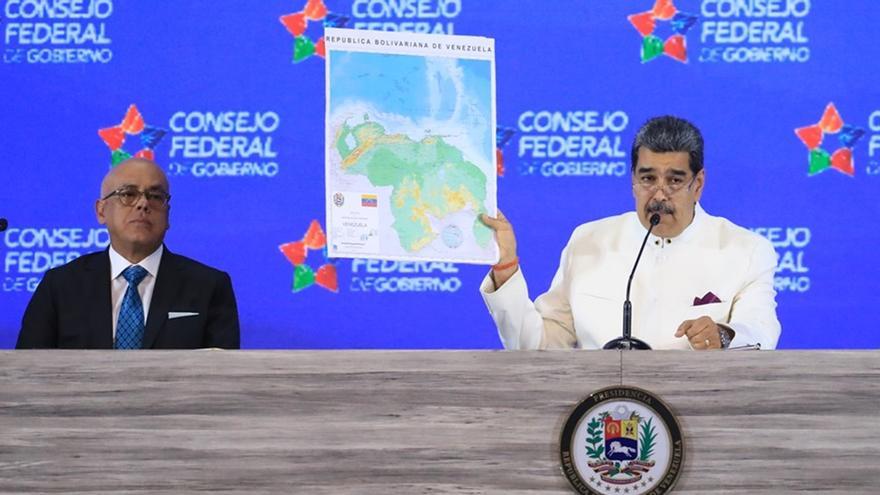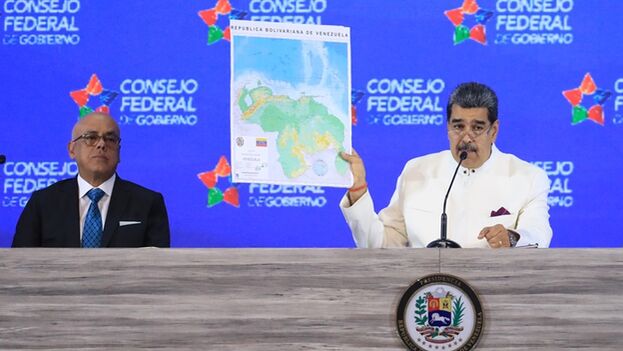
14ymedio, Havana, 8 December 2023 — Havana’s silence in the face of the bellicose declarations of its Venezuelan ally to integrate the Essequibo region of Guyana into its territory seems to reflect a short-term calculation: to present itself as a mediator and use the risk of a conflict with small Guyana to postpone the elections, and thus stave off the risk of an opposition victory in Caracas, something totally unacceptable to the Cuban regime.
The tension between Venezuela and Guyana has reached its zenith since last Sunday, when after a referendum of very dubious validity Nicolás Maduro announced his plans to annex the territory, which include founding a state administered by Caracas, promoting the oil exploitation of the area by the Venezuelan-owned PDVSA and create, together with the Army, a “comprehensive defense zone.” After the announcement, Guyanese President Irfann Ali warned Maduro that he would summon his allies, including the United States Southern Command. The factors at play in Essequibo: oil, gold and geopolitics.
For his part, Cuban President Díaz-Canel gave a discreet show of support to Guyana this Friday, recalling the more than 50 years of diplomatic relations that both countries have behind them. Both “peoples and governments” are united by “deep ties of friendship and cooperation,” said the president, without referring to his meeting in the United Arab Emirates with Ali and other Caribbean friends from Havana, such as Ralph Gonsalves, prime minister of Saint Vincent and the Grenadines.
In addition to the United States and the Commonwealth of Nations – an organization that brings together countries with historical ties to the United Kingdom – Guyana has found support among the leaders of the Caribbean Community (Caricom), whose headquarters are located in Georgetown itself, and which on Friday Díaz-Canel greeted in his X profile.
This week a newspaper clipping from 1981 circulated on social media where, next to a photo of an angry Fidel Castro, a headline appeared: “Venezuela is expansionist!
The Cuban president approached Georgetown in 2022, when he spoke by phone with Ali and agreed on cooperation agreements in several key areas, suc


